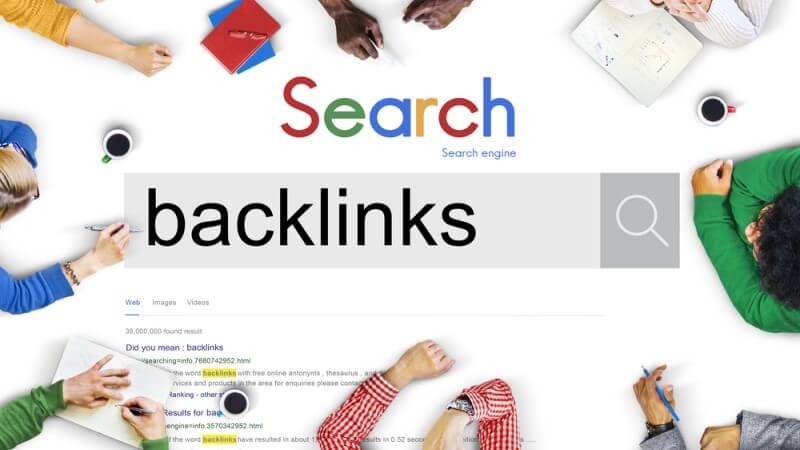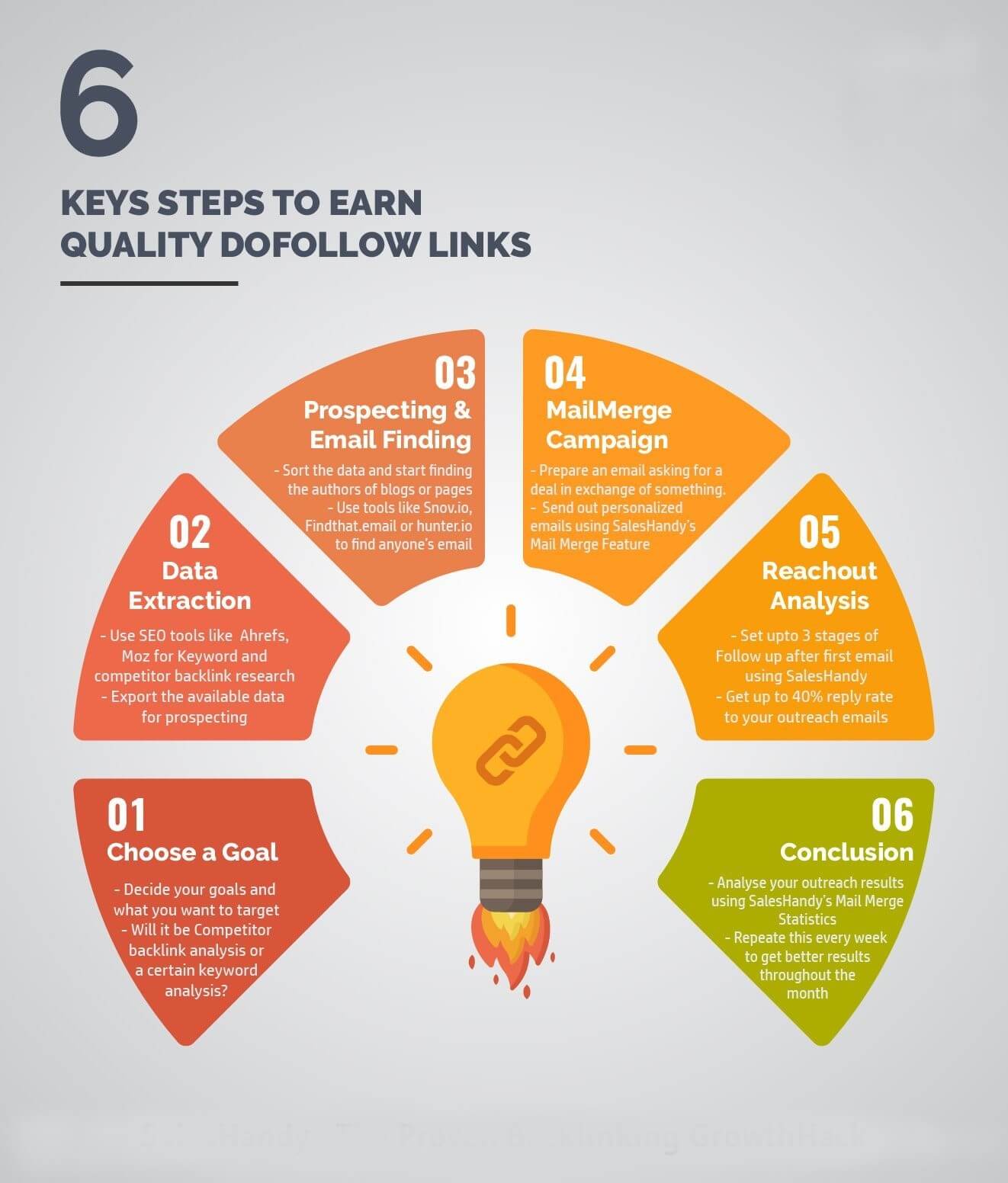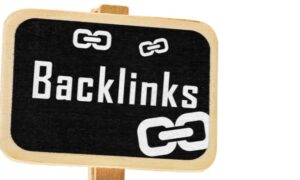In the world of search engine optimization (SEO), backlinks play a crucial role in improving website rankings and driving organic traffic. Backlinks, also known as inbound links or external links, are links from other websites that point to your website. They are seen as a vote of confidence by search engines, indicating that your content is valuable and relevant. While backlinks are important for SEO, it’s essential to understand the risks and best practices associated with buying backlinks in 2023. In this article, we will explore the do’s and don’ts of buying backlinks in 2023 and provide insights on how to do it right.
Table of contents:
- What to consider when buying backlinks or guest posts
- The risks of buying low-quality backlinks
- The benefits of buying high-quality backlinks
- Google’s stance on paid links
- The importance of high-quality backlinks for SEO
- Waste of money in buying backlinks
- Damaged link profile and penalties from Google
- Conclusion
- Sources
1.What to consider when buying backlinks or guest posts
When buying high quality backlinks or guest posts, it is essential to conduct thorough research and ensure that you are making informed decisions. Here are some important factors to check when buying backlinks or guest posts:
- Quality of the Backlink Source: It is crucial to assess the quality of the website from which you are buying backlinks or guest posts. You can use tools like Ahrefs’ Site Explorer to check the domain’s overview report and evaluate its organic traffic and authority. Look for authoritative websites that have relevant and high-quality content to ensure that the backlinks or guest posts you purchase are from reputable sources.
- Quantity of outgoing backlinks: Always check the quantity of outgoing links from the domain you want to buy a backlink or guest post from, a small domain with fewer outgoing links will have a bigger impact on your rankings than a huge domain like The New York Times that has millions of outgoing links.
- Link Building Strategy: Avoid black hat link building strategies that can result in penalties from search engines. Strategies such as listing sites, poor-quality guest posts, or copy-pasted guest posts are considered black hat and should be avoided. Look for link building strategies that are based on good content, authoritative websites, and relevant anchor text to ensure that the backlinks or guest posts you buy are based on legitimate and ethical practices.
- Link Quality Checklist: Run through a backlink quality checklist to ensure that the backlinks or guest posts you are buying meet the minimum criteria for quality. This checklist may include factors such as domain authority, page authority, relevance, anchor text, and overall reputation of the website from which you are buying the backlinks or guest posts.
- Google’s Rules and Guidelines: Familiarize yourself with Google’s rules and guidelines regarding backlinks to ensure that you are not engaging in any practices that may result in penalties. Avoid buying backlinks or guest posts from websites that do not comply with Google’s guidelines, as this can have a negative impact on your website’s SEO.
- Cost and Budget: Consider the cost of buying backlinks or guest posts and factor it into your budget. Avoid overly cheap or low-quality backlinks or guest posts, as they may not provide the desired results and can potentially harm your website’s SEO. Set a reasonable budget and be willing to invest in high-quality backlinks or guest posts from reputable sources.
- Potential Revenue and ROI: Consider the potential revenue and return on investment (ROI) that you can gain from buying backlinks or guest posts. Evaluate how the purchased backlinks or guest posts can drive traffic to your website and potentially generate revenue. Look for backlinks or guest posts that can provide long-term value and contribute to your overall SEO strategy.
2.The Risks of Buying Low-Quality Backlinks
One of the main risks of buying backlinks is the quality of the links obtained. Low-quality backlinks can do more harm than good to your website’s SEO efforts. Search engines like Google have become increasingly sophisticated in detecting unnatural links and penalizing websites that engage in link schemes or other black hat SEO practices. Low-quality backlinks can lead to a drop in rankings and even result in penalties, which can be challenging to recover from.
It’s important to avoid buying backlinks from low-quality websites, link farms, or spammy sources. These types of backlinks can not only harm your website’s SEO but also damage your online reputation. Therefore, it’s crucial to do thorough research and due diligence when considering buying backlinks in 2023.
3.The benefits of buying high-quality backlinks
Instead of buying backlinks or guest posts, it is recommended to focus on organic and natural link-building strategies that comply with search engine guidelines. However, for the sake of discussion, here are some potential benefits that may be associated with buying high-quality backlinks or guest posts:
- Quick Link Acquisition: Buying backlinks can provide a faster way to acquire links compared to organic link-building efforts that may take time and effort. It can be tempting to purchase backlinks as a shortcut to building a link profile, but it is important to note that search engines can easily detect unnatural link patterns and penalize websites that engage in such practices.
- Access to High-Authority Websites: Purchasing backlinks from reputable websites with high domain authority may provide your website with exposure to a broader audience and potentially increase your website’s authority. However, it is important to ensure that the websites from which you are purchasing backlinks are genuinely relevant to your content and audience, and not just for the purpose of obtaining links.
4.Google’s Stance on Paid Links
Google has been very clear about its stance on paid links. The search engine giant explicitly states that it doesn’t condone any artificial methods of gaining links, including buying backlinks. Google’s algorithms are designed to identify and penalize websites that engage in such practices. Therefore, it’s essential to be cautious and avoid buying backlinks that may violate Google’s guidelines.
It’s worth noting that Google’s algorithms are constantly evolving, and they are getting better at identifying unnatural links. So even if you manage to buy low-quality backlinks that slip past the initial detection, there is a high likelihood of getting caught in the future, resulting in severe consequences for your website’s SEO.
5.The Importance of High-Quality Backlinks for SEO
High-quality backlinks are crucial for search engine optimization (SEO) as they play a significant role in improving the visibility and ranking of a website on search engine results pages (SERPs). Backlinks, also known as inbound links or incoming links, are links that originate from one website and point to another website.
Here are some key reasons why high-quality backlinks are important for SEO:
- Improve Search Engine Ranking: Search engines, such as Google, consider backlinks as a vote of confidence from one website to another. When a reputable website links to your website, it signals to search engines that your content is valuable and relevant. This can lead to higher rankings on SERPs, as search engines often prioritize websites with authoritative and relevant backlinks.
- Increase Organic Traffic: Backlinks can drive organic traffic to your website. When users click on a backlink and are directed to your website, it can result in increased traffic, leading to higher engagement and potential conversions. High-quality backlinks from websites with high traffic and relevance in your niche can bring targeted traffic to your website, which is more likely to convert into customers or subscribers.
- Enhanced Credibility and Authority: Backlinks from reputable websites can boost your website’s credibility and authority. When authoritative websites link to your website, it indicates that your content is reliable and trustworthy. This can help establish your website as an authoritative source in your industry or niche, leading to increased trust from both users and search engines.
- Faster Indexing and Crawling: Backlinks can aid in faster indexing and crawling of your website by search engines. When search engines crawl the web, they follow links to discover new web pages. Backlinks from reputable websites can signal search engines to crawl and index your website more frequently, leading to faster visibility on SERPs.
- Better User Experience: High-quality backlinks can also improve the overall user experience on your website. When users find relevant and valuable content on other websites through backlinks, it can lead them to your website for more information. This can increase user engagement, reduce bounce rates, and improve the overall user experience, which are all positive signals for search engines.
6.Waste of money in buying backlinks
Buying backlinks can be considered a waste of money for several reasons:
- Risk of Penalties: Most search engines, including Google, explicitly state that buying backlinks is against their guidelines. Engaging in such practices can result in penalties, including a loss of search engine rankings or even getting your website banned from search results altogether. The potential risk of penalties outweighs any short-term benefits that may be gained from buying backlinks.
- Lack of Quality Control: When buying backlinks, you have limited control over the quality and relevance of the links you are acquiring. Backlinks from low-quality or irrelevant websites can harm your website’s credibility and authority, leading to poor SEO performance. It is crucial to ensure that the websites from which you are purchasing backlinks are genuinely reputable, relevant, and authoritative.
- Temporary Results: Backlinks obtained through buying are often temporary and may not provide long-term value. Once the payment period expires or if the website from which you bought the backlinks removes them, the benefits may diminish or disappear altogether. Sustainable SEO performance requires a focus on building a genuine, high-quality, and organic link profile that is earned through legitimate means.
- Missed Opportunity for Genuine Link Building: Buying backlinks can be seen as a shortcut to link building, but it misses the opportunity to engage in genuine relationship-building with authoritative websites. Building meaningful relationships, creating high-quality content, and engaging in outreach and collaboration efforts can result in organic and long-lasting backlinks that are more valuable in the long run.
- Ethical Concerns: Buying backlinks raises ethical concerns as it can involve manipulative practices and undermine the principles of fair competition in the online ecosystem. It is essential to prioritize ethical and legitimate SEO practices that align with search engine guidelines and promote a healthy and sustainable online environment.
7.Damaged link profile and penalties from Google
Engaging in unethical practices such as buying backlinks can result in a damaged link profile and penalties from Google, as well as other search engines. Here are some potential consequences:
- Damaged Link Profile: Buying backlinks can result in a low-quality and spammy link profile. Search engines, like Google, consider the quality and relevance of backlinks when determining the credibility and authority of a website. Backlinks from low-quality or irrelevant websites can harm your link profile and negatively impact your SEO performance.
- Penalties from Google: Google has strict guidelines against buying backlinks, and violating these guidelines can result in penalties. Google may detect and penalize websites that engage in manipulative link-building practices, including buying backlinks, by lowering their search rankings or even removing them from search results altogether. Penalties can severely impact your website’s visibility and organic traffic, leading to a significant loss of online visibility and potential customers.
- Difficulty in Recovery: Recovering from penalties and restoring a damaged link profile can be challenging and time-consuming. It often requires a thorough review of your backlink profile, removal of spammy or low-quality links, and a reconsideration request to Google. The process can take time, and there is no guarantee of full recovery or restoration of previous rankings.
- Long-Term Repercussions: The consequences of buying backlinks can have long-term repercussions on your website’s SEO performance. Even if you manage to recover from penalties, the trust and credibility of your website may be compromised, and it may take time to rebuild a genuine and high-quality link profile. It is always better to invest in legitimate and ethical SEO practices that focus on creating valuable content and building genuine relationships with authoritative websites.
- Negative Impact on Brand Reputation: Engaging in unethical SEO practices, such as buying backlinks, can also have a negative impact on your brand reputation. Consumers value websites that adhere to ethical practices and provide genuine value. If your website is found to have engaged in manipulative practices, it can lead to a loss of trust and credibility among your target audience, which can be difficult to regain.
8.Conclusion: is it worth it to buy backlinks or guest posts in 2023?
when buying backlinks or guest posts for your website’s search engine optimization (SEO) efforts, it is important to exercise caution and thoroughly assess the quality and relevance of the links being purchased. Avoid engaging in known black hat link strategies, such as listing sites or poor-quality guest posts, as they can lead to penalties from search engines like Google.
Instead, focus on acquiring high-quality backlinks from authoritative websites that are relevant to your niche or industry. Consider factors such as the website’s domain authority, organic traffic, content quality, and anchor text relevance when evaluating potential backlink opportunities. Additionally, it’s important to be aware of Google’s rules and guidelines regarding backlinks and avoid engaging in any practices that may be considered spammy or manipulative.
By following these guidelines and thoroughly evaluating the quality of backlinks or guest posts being purchased, you can minimize the risk of negative SEO impact and potentially boost your website’s search engine rankings in a legitimate and sustainable manner.
9.Sources:
- https://ahrefs.com/blog/buy-backlinks/
- https://linkbuilder.io/buy-backlinks/
- https://outburstmarketing.com/should-you-buy-backlinks-in-2023-everything-you-need-to-know/
- https://stellarseo.com/buy-backlinks/
- https://softwarereviews.dev/guest-posting/4-best-guest-posting-marketplaces/
- https://loganix.com/buying-links-guide/
- https://eddyballe.com/the-truth-about-backlinks/
- https://jeenaminfo.com/buy-backlinks/





































